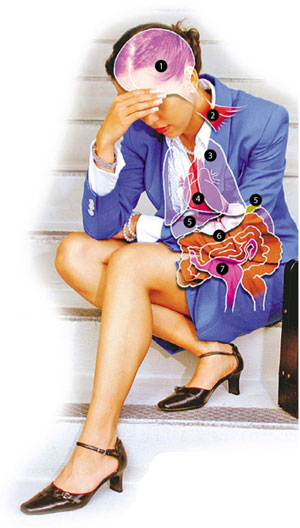Mens Health
Medical Certificates
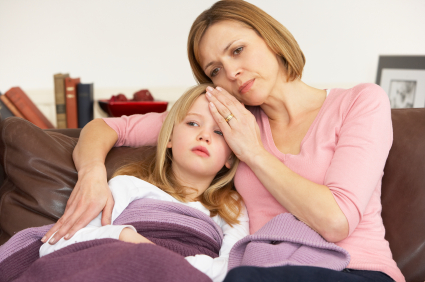 MEDICAL CERTIFICATES
MEDICAL CERTIFICATES
(WORK, EXAMS, SCHOOL)
If you are unable to attend work, exams or school you may be required to provide a medical certificate. This can be obtained by visiting the doctor and by proving that you are sick or unfit for work, school or exams.
Mental Health Plans
Mental Health Plans

A Mental Health Care Plan is a plan made by your doctor for treating a mental health problem over time.
Your Doctor will work with you to assess your mental health, work out what help you need, set goals and choose the treatment that would be best for you. Your doctor will also discuss options for treatment and advise you about any other services that might help you. (The plan might also include what to do in a crisis or to prevent relapse.)
Once you and your doctor have agreed on your goals and what you need to do to achieve them, your doctor will write out a mental health care plan. Preparing the plan may take a number of visits.
Allergies
Allergies
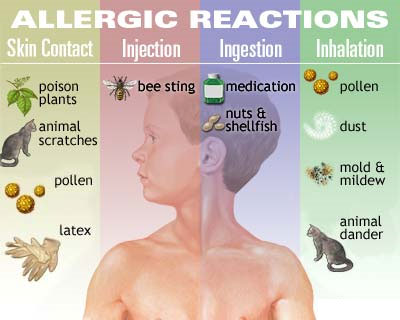
An allergy is an abnormal reaction by a person's immune system against a normally harmless substance. A person without allergies would have no reaction to this substance, but when a person who is allergic encounters the trigger, the body reacts by releasing chemicals which cause allergy symptoms. However, just because there is a cause and effect between exposure to a substance and the development of symptoms does not always mean that a person is allergic to that substance.
Allergies can be:
- Nasal Allergies
- Hay Fever
- Skin Allergies
- Food Allergies
- Drug and Medicine Allergies
- Insect Allergies
If you think you may have had an allergic reaction.
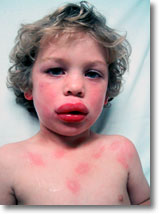
This little boy is suffering severe facial swelling and urticaria.
These are not life-threatening in themselves but may lead to more severe symptoms, such as anaphylaxis.

EpiPen® Auto-Injector is the #1 doctor prescribed epinephrine Auto-Injector for those with a history of anaphylaxis. EpiPen® helps stop allergic reactions fast - giving you time to get the emergency medical help you need.
Infections
Infections
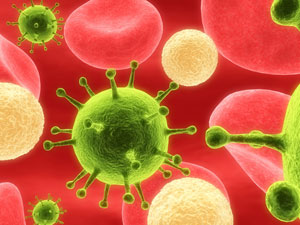
Many human illnesses are caused by infection with either pathogenic (disease-causing) bacteria or viruses. To cause disease, these micro-organisms must gain access to the body. Bacteria reproduce by splitting in two, while viruses replicate themselves inside host cells. Many bacterial infections can be treated successfully with antibiotics, but these are useless against viral infections.
Types of Infections
- Skin
- Eye Infections
- Viral Infections
- Ear Infections
- Wound Infection
- Urinary Tract Infections
- Bacterial Infections
- Kidney Infections
- Chest Infections
- Stomach Infections
- Fungal Infections
- Cold and Flu
- Lung and Respiratory
- Parasitic Infections
Erectile Dysfunction
Erectile Dysfunction

Erectile Dysfunction (ED), also known as impotence, is the medical term for erection difficulties. Erectile Dysfunction is the inability to achieve and/or maintain an erection of sufficient quality for sexual activity or intercourse.
Erectile Dysfunction or impotence is a common sexual health issue and there is no need to be embarrassed about it. It is important to consult your doctor when experiencing erectile dysfunction for a medical check up, because it can also be an early indicator of other health concerns. Your Doctor can give you advice on the various treatments available for erectile dysfunction.
Sexually Transmitted Infection Screening
Sexually Transmitted Infection Screening

Sexually transmitted diseases (STDs) are infections that you can get from having sex with someone who has the infection. The causes of STDs are bacteria, parasites and viruses. Some Types of these diseases are Chlamydia, Gonorrhea (The Clap), Pelvic Imflammatory Disease, HPV, Syphilis, Herpes Simplex HSV, Trichomoniasis,
Rates of sexually transmitted infections are increasing worldwide and notifications are also increasing in Australia. As many sexually transmitted infections are asymptomatic, timely and appropriate testing is needed to avoid the long-term sequel of infection, to halt transmission. Testing for sexually transmitted infections has evolved over time. Although nucleic acid amplification tests have an increasing role and may enable non-invasive testing, microscopy and culture are still useful investigations for some infections.
Incontinence
Incontinence
About bladder and bowel health
Healthy bladder and bowel habits can help you avoid bladder and bowel control problems such as incontinence. Incontinence can have a major impact on your quality of life. If you or someone you know is affected by incontinence it's important to remember that you're not alone - almost 4 million Australians are affected by incontinence, it affects both men and women, regardless of your age or background, it can be treated, managed and in many cases cured..
What is incontinence?
Incontinence is a term that describes any accidental or involuntary loss of urine from the bladder (urinary incontinence) or bowel motion, faeces or wind from the bowel (faecal or bowel incontinence).
Incontinence is a widespread condition that ranges in severity from 'just a small leak' to complete loss of bladder or bowel control. In fact, over 3.8 million Australians have bladder or bowel control problems for a variety of reasons. Incontinence can be treated and managed. In many cases it can also be cured.
Think you might have a problem?
If you experience bladder or bowel problems, but are not sure if you should seek help, try the questionnaire below.

Bladder and bowel questionnaire
- Do you sometimes feel you have not completely emptied your bladder?
- Do you have to rush to use the toilet?
- Are you frequently nervous because you think you might lose control of your bladder or bowel?
- Do you wake up twice or more during the night to go to the toilet?
- Do you sometimes leak before you get to the toilet?
- Do you sometimes leak when you lift something heavy?
- Do you sometimes leak when you exercise or play sport?
- Do you sometimes leak when you change from a seated or lying position to a standing position?
- Do you strain to empty to bowel?
- Do you sometimes soil your underwear?
- Do you plan your daily routine around where the nearest toilet is?
If You answered yes to any of these questions you may have a bladder or bowel control problem.
The first step is to talk to your doctor.
Urinary incontinence
Urinary incontinence (or poor bladder control) is a common condition, that is commonly associated with pregnancy, childbirth, menopause or a range of chronic conditions such as asthma, diabetes or arthritis.
Poor bladder control can range from the occasional leak when you laugh, cough or exercise to the complete inability to control your bladder, which may cause you to completely wet yourself. Other symptoms you may experience include the constant need to urgently or frequently visit the toilet, associated with 'accidents'.
There are different types of incontinence with a number of possible causes. The following are the most common stress incontinence, urge incontinence, overflow incontinence, functional incontinence.
Urinary incontinence can be caused by many things, but can be treated, better managed and in many cases cured. For this reason, it is important to talk to your doctor if you have any concerns.
Faecal incontinence
People with poor bowel control or faecal incontinence have difficulty controlling their bowels. This may mean you pass faeces or stools at the wrong time or in the wrong place. You may also find you pass wind when you don't mean to or experience staining of your underwear. About one in 20 people experience poor bowel control. It is more common as you get older, but a lot of young people also have poor bowel control. Many people with poor bowel control also have poor bladder control (wetting themselves).
Faecal incontinence can have a number of possible causes. The following are the most common weak back passage muscles due to having babies, getting older, some types of surgery or radiation therapy, constipation or severe diarrhoea.
Anxiety Disorders
Anxiety Disorders

Anxiety disorders are a group of psychiatric or psychological disorders. They include generalised anxiety disorders, social phobias, specific phobias – for example, agoraphobia and claustrophobia – panic disorders, obsessive compulsive disorder (OCD) and post traumatic stress disorder. Untreated anxiety disorders can lead to depression.
Anxiety disorders are common mental health problems that affect many people. Approximately 25 per cent of the population have an anxiety disorder that warrants treatment at some time in their life and up to another 25 per cent have less severe anxieties such as fears of spider and snakes.
Not all anxiety is a disorder
Everyone experiences anxiety and fear at times; they are normal and helpful human emotions that help us deal with danger. However, some people experience excessive and irrational anxiety, and worries that become ongoing and distressing and that interfere with their daily lives. This may indicate an anxiety disorder. Often there appears to be no obvious or logical reason for the way the person feels. This may make an anxiety disorder even more worrying to the sufferer.
Symptoms of anxiety disorders
The main features of an anxiety disorder are fears or thoughts that are chronic (constant) and distressing and that interfere with daily living. Other symptoms of an anxiety disorder may include:
- Panic or anxiety attacks or a fear of these attacks
- Physical anxiety reactions – for example trembling, sweating, faintness, rapid heartbeat, difficulties breathing or nausea
- Avoidance behaviour – a person may go to extreme lengths to avoid a situation that they think could bring on anxiety or panic.
Panic attacks are a common symptom
A panic attack is a sudden feeling of intense terror that may occur in certain situations or for no apparent reason. A panic attack does not mean a person is necessarily suffering an anxiety disorder. However, a panic attack is a common feature of each type of anxiety disorder. Symptoms of a panic attack may include:
- Shortness of breath
- Dizziness
- Rapid heartbeat
- Choking
- Nausea.
The cause of panic attacks is unknown but they may be related to a chemical response in the brain, caused by actual threatening or stressful events or by thinking about stressful events. The brain response leads to physiological changes in the body, such as shallow breathing and rapid heartbeat.
Panic attacks can be frightening. Some people say they feel like they are going to die or go crazy. People affected by panic attacks may avoid situations in which they think attacks might occur. In some cases, this may lead to the development of other anxiety disorders including agoraphobia.
Types of anxiety disorders
Anxiety becomes a disorder when it is irrational, excessive, too persistent and attached to situations that do not warrant it and when it interferes with the person’s daily life. Anxiety disorders include:
- Generalised anxiety disorder
- Social phobias – fear of social situations
- Specific phobias – for example a fear of open spaces (agoraphobia) or enclosed spaces (claustrophobia)
- Panic disorders – frequent and debilitating panic attacks
- Obsessive compulsive disorder
- Post traumatic stress disorder.
Generalised anxiety disorder
Generalised anxiety is excessive anxiety and worry about common issues. The focus of the anxiety might be family or friends, health, work, money or forgetting important appointments. A person may be diagnosed with a generalised anxiety disorder if:
- The anxiety and worry has been present most days over a six-month period
- The person finds it difficult to control their anxiety.
Social phobias
People with social phobia are afraid of being negatively judged or evaluated by others. This leads to fear of doing something that may humiliate them in public – for example public speaking, using public toilets, eating and drinking in public, writing in public, or any social encounters such as parties or workplaces.
Some social phobia sufferers may only fear one type of situation. Others may be concerned about several types of situations. This can lead them to avoid the feared situations, which can lead to severe isolation.
Specific phobias
A person with a specific phobia has a persistent and irrational fear of a particular object or situation. They may fear animals, places or people. Fear of the object or situation is so severe that a person may experience physical symptoms and panic attacks. Fears may include dogs, blood, storms, spiders or other objects or situations but, in all cases, the anxiety is both excessive and interfering.
The adult phobia sufferer usually knows that their fear is excessive or unreasonable. However, their need to avoid the object, place or person can significantly restrict their life.
Panic disorders
Panic or anxiety attacks are common. Panic disorders are less common; they affect about two per cent of the population. For a person to be diagnosed with a panic disorder, they would usually have had at least four panic attacks each month over an extended period of time. Often panic attacks may not be related to a situation but come on spontaneously.
Panic disorder may be diagnosed if panic attacks are frequent and if there is a strong and persistent fear of another attack occurring.
Obsessive compulsive disorder
People with obsessive compulsive disorder (OCD) have intrusive, unwanted and involuntary thoughts or impulses (obsessions). They also feel compelled to perform behavioural and mental rituals (compulsions) such as excessive handwashing, showering or checking. They are usually aware of the irrational and excessive nature of their behaviour.
Post traumatic stress disorder
Post traumatic stress disorder develops after someone is exposed to an extremely traumatic event. The event may be recent, such as a car accident or physical assault, or it may have occurred in the past, such as childhood sexual assault.
Reactions of grief, shock and anger are normal after traumatic events. However, people with post traumatic stress disorder experience severe, prolonged and intrusive reactions that dramatically affect their daily life. These may include intrusive thoughts or images of the traumatic situation that are as distressing, or more distressing, than the original event. Often people begin to avoid reminders of the trauma, including places or similar situations.
Anxiety disorders can have serious effects
An anxiety disorder may lead to social isolation and clinical depression, and can impair a person’s ability to work, study and do routine activities. It may also hurt relationships with friends, family and colleagues. Depression can be a serious illness with a high risk of self-harm and suicide.
Recovery is possible with treatment
Recovery from an anxiety disorder is possible with the right treatment and support. Effective treatments for anxiety disorders may include:
- Cognitive behavioural therapy – aims to change patterns of thinking, beliefs and behaviours that may trigger anxiety. Part of the therapy may involve gradually exposing a person to situations that trigger anxiety: this is called desensitisation.
- Anxiety management and relaxation techniques – for example hypnotherapy, meditation, breathing exercises and counselling.
- Medication – this may include antidepressants and tranquillisers.
Where can I get help?
- Your doctor
Depression
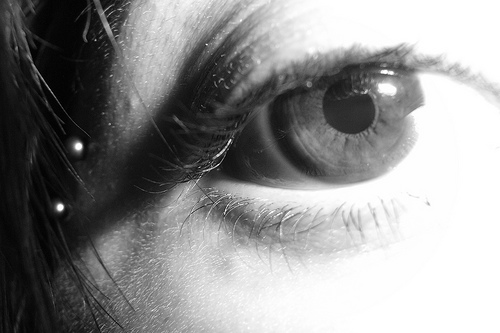
Depression
Depression is more than just a low mood - it's a serious illness. While we all feel sad, moody or low from time to time, some people experience these feelings intensely, for long periods of time and often without reason. People with depression find it hard to function every day and may be reluctant to participate in activities they once enjoyed.
Depression is one of the most common of all mental health problems. One in five people experience depression at some stage of their lives.
If you have any concerns please come and see one of our Gracemere Doctors or Registered Nurse for the best advice
Bipolar Disorder

Bipolar Disorder
Bipolar disorder, which used to be called manic depression, involves both periods of feeling low (depressed) and high (mania).
Most people experience a range of moods depending on what's happening in their lives. When good things happen, like getting a new job, going on a holiday or falling in love, it's natural to feel happy. On the other hand, when there are difficulties like losing a job or a loved one, having money or family problems, it can make a person feel down.
However, people with bipolar disorder experience extreme moods that can change regularly and may not relate to what is happening in their lives, although their mood swings may be triggered by certain events.
Arthritis
Arthritis

Arthritis occurs when joints or muscles become painful, stiff and swollen. Common types include osteoarthritis, rheumatoid arthritis, juvenile idiopathic arthritis, psoriatic arthritis, gout, ankylosing spondylitis and fibromyalgia. Exercise, medication and supportive therapies can help manage symptoms.
Sleep Apnea
Sleep Apnea

Sleep Apnea means absence of breath. Sleep apnea occurs when the airway from the mouth to the lung collapses during sleep. The person with sleep apnea may have hundreds of these episodes throughout the night, disrupting their sleep and reducing oxygen supply to vital organs. Sleep apnea is a common condition affecting about 5% of adults. Fortunately effective treatment is available and once treated the person with sleep apnea leads a normal healthy life.
People with sleep apnea usually snore loudly and have restless sleep. Sleep apnea is associated with heart attacks and stroke. Signs and symptoms such as snoring, obesity, observed apnea and sleepiness in the day may suggest that a person has sleep apnea but the best way to be really sure is with an overnight sleep study. In the sleep study the patient is wired up and attached to computers which measure their sleep, their breathing and oxygen levels. In many people sleep apnea results from being overweight. If this is the case, losing weight may help or even cure the apnea. In any case, losing weight may assist with cardiovascular disease such as high blood pressure and with diabetes management.
Eating Disorders
Eating Disorders
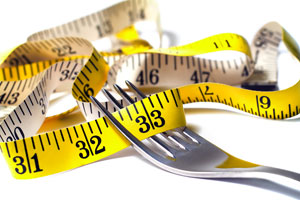
Low Self Esteem
Low Self Esteem

How do you see yourself?
Relationship Concerns
Relationship Concerns
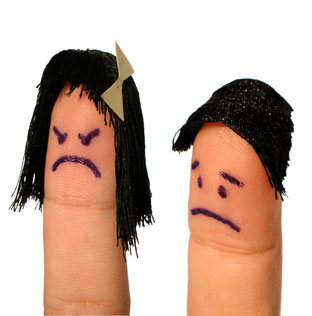
We all have many different types of relationships - we are Partners, Parents, Siblings, distant relatives, friends, & colleagues.
Relationships usually involve some level of interdependence.
People in these various relationships tend to influence each other, in subtle or significant ways.
We share our thoughts and feelings, and engage in activities together.
Because of this interdependence, most things that change or impact one member of the relationship will have some level of impact on the other member.
Sometimes these relationships can be a cause of concern and we just need someone to talk to about it.
Obesity
Obesity
Some of the Health Risks associated with Obesity:
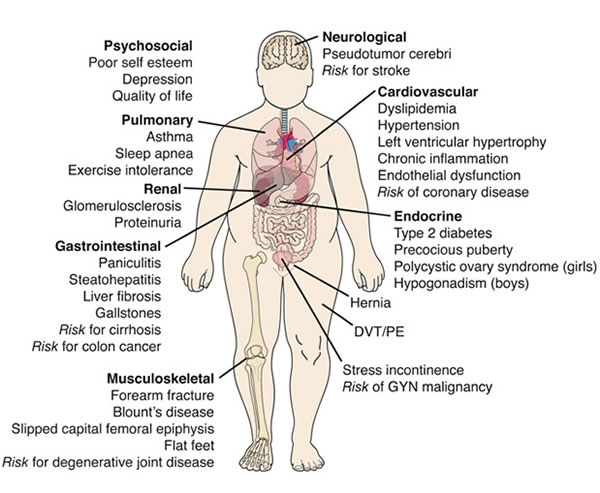
How do you measure up? See the chart below.
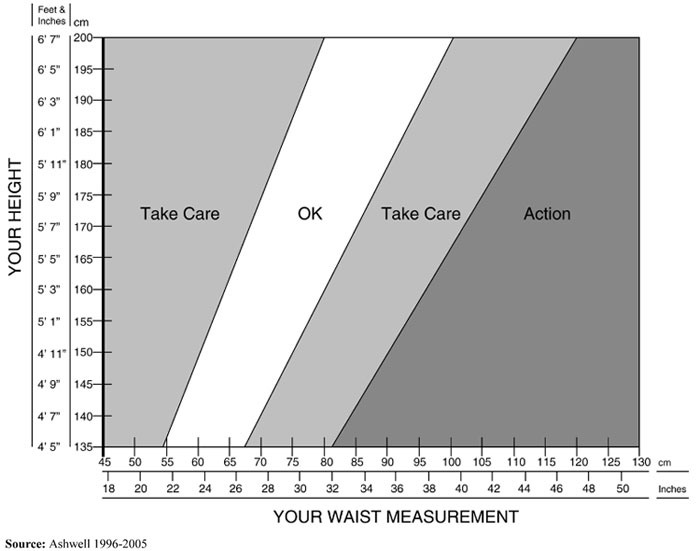
Stress
Stress
Life is busy, demanding and sometimes stressfull. Sometimes you may feel you need to find some balance again? Learning to recognise the signs and symptoms of stress can help us to reduce the harmful effects it can cause over a prolonged period of time.
|
|



